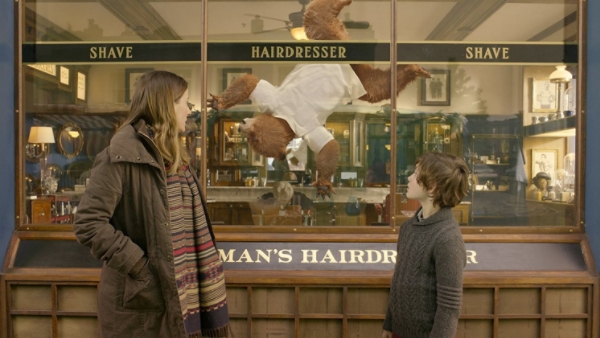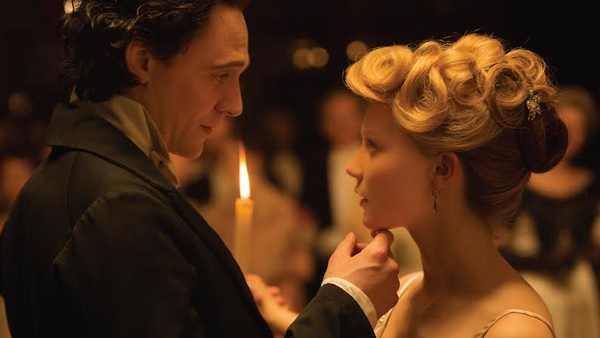
Bernie, Richard Linklater’s black comic docudrama about Bernie Tiede, has two great tricks up its sleeve. The first happens to be Carthage, Texas, the city in which both the events that inspired the film and the events that occur within the film take place. Choice in location may not seem like an impressive sleight of hand, but Linklater so successfully installs his production “behind the pine curtain” that we’re not only transported to Carthage proper, we’re drawn into their culture. The townsfolk we meet– bona fide Carthage residents who knew Tiede and witnessed the circus surrounding his 1998 trial– breathe rural, down-home authenticity into Bernie, but more importantly they talk to us. They relate to us. They treat us like one of their own.
Strangely, being assimilated into the Carthage gossip circle isn’t an unpleasant experience, but that established sense of familiarity allows Linklater to pull off his second, far more cunning stunt. When Bernie‘s last act rolls around and its eponymous rotund, fay character finds himself in the hot seat before a jury of his peers, we actually feel bad for him. The trick happens to be far more devious than that, though; Linklater doesn’t just play on our sense of human compassion, he leads us to actively agree with Tiede’s friends and neighbors that the man deserves mercy. Is there such a thing as justifiable murder? The majority of the Carthage citizenry seem to think so, and if you find yourself nodding in accord to their sentiment, then Linklater’s chicanery has worked its magic.
Of course, Tiede isn’t a monster, so maybe Linklater doesn’t need to try very hard to get us to empathize with him. No, Tiede– at least, in the eye of the camera– is just a sweet, well-meaning, caring, charming man who practically bursts at the seams with good intention. Similarly, Bernie needs to do very little legwork to turn its audience against Marjorie Nugent, the octogenarian widow Tiede eventually shot down in cold blood after enduring her neuroses and abuse for more than half a decade. The truth about the crime lies somewhere in between Bernie’s honorary status as an angel on earth and Marjorie’s as a devil, though; she’s pitiable in her own way, paranoid and frightened and alone and completely incapable of reaching out to make amends with her own estranged family. Bernie, on the other hand, well, he’s either a sucker or a devious con-man, though it’s difficult to tell and the film doesn’t make much of a case for the latter.
It’s in the schism separating Marjorie’s harridan persona and Bernie’s inclination toward appeasement where Bernie finds its worth. While the film is more than capable of luring audiences into championing Tiede, the perspective Linklater provides us as the picture’s architect invites us to receive these events in a way that the Carthage residents we meet through talking-head interviews can’t (or don’t). They alternate between total denial of Bernie’s guilt, despite a freely given confession which sets his culpability in stone, or callous absolution, claiming that Marjorie deserved to die and that many Carthaginians would have killed her for five dollars. Here, Bernie feels subversive, a prank being played on these very real people voicing their very real opinions on a very real incident of first degree murder; Linklater’s letting them hang themselves while painting an unflattering portrait of small town America in the process.
Maybe Bernie could be taken primarily as a scathing sort of cultural satire if viewed through that particular lens. Of course, accepting the film as an examination of Tiede, Nugent, and murder, it still feels like Linklater is keeping his tongue firmly in cheek about the whole ordeal. He’s not operating in the vein of, say, the Coen brothers, mind; much as we get the sense that Linklater is privately chuckling at the events of his film, he also clearly cares about these characters– even Marjorie, who he envisions as a woman at least partially driven by her fear of abandonment. Bernie himself, on the other hand, comes to be defined by a center of genuine kindness, which renders commentary on his malice offered by a grandstanding district attorney into utterly dishonest foolishness. We’re meant to laugh at Bernie, certainly, but we’re expected to tap into our own humanity to engage it, too.
Which brings us around to Jack Black, whose efforts here should turn around an entire Internet’s worth of derision and ire (but which probably won’t). Black, historically, has played loudmouths and boors, self-aggrandizing buffoons and elitist windbags; whatever traces of sweetness exist in his career (and there are many, from School of Rock, the first picture Black and Linklater collaborated on, to Kung Fu Panda), none of them suggest the depth of warmth he brings to his work in Bernie‘s title role. Put simply, he’s a revelation, and that’s saying something considering that it’s been twelve years since he broke out in High Fidelity; through Black, Tiede becomes a generous caregiver and friend who wants to give everyone everything they want, a patron saint of charity and goodness. Watching him from scene to scene is a frustrating wonder. Where has this side of Black been in the last decade and change?
Alongside Black, Shirley MacLaine is fabulously nasty and pathetic as Marjorie while Matthew McConaughey puffs out his chest as DA Danny Buck Davidson, as complete a yahoo as the Carthage folk he serves but in a completely different direction. They’re equally indispensable as Black, but essential though they may be we know whose show Bernie truly is. It’s difficult to say whether the film represents a bigger win for Black or Linklater; Black has never been this good in his life, and Linklater hasn’t had a lasting, memorable hit since 2004’s Before Sunset. (Arguments in favor of A Scanner Darkly aren’t without merit, though.) If Bernie tells us anything, it may be that these two need to work together more.



